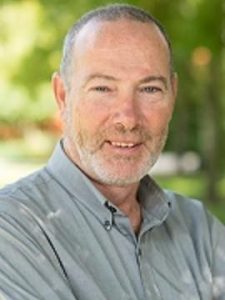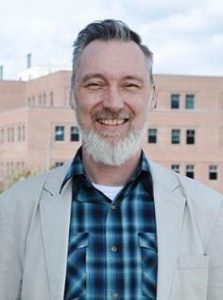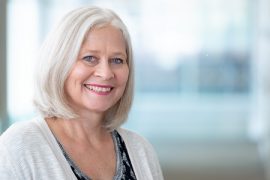From 2009 – 2019 the centre operated with Co-Directors Dr. Rachelle Hole and Dr. Tim Stainton who are both founding members of the Centre and have extensive experience in the disability sector. Community and government frequently call upon Drs. Hole and Stainton to share their expertise on disability related issues through serving on community and government advisory boards and provincial, national, and international committees. For example, Dr. Stainton was appointed by the Council of Canadian Academies to the National Expert Panel on Medical Assistance in Dying in 2017 and continues to serve in that role, and Dr. Hole serves as a member of the BC Representative for Children and Youth Multidisciplinary Team, since January 2017. Both are currently members of UBC President Ono’s Working Committee on Disability Culture, Art, and Equity. Dr. Stainton’s international academic leadership in the field was affirmed in 2015 when he was appointed a Fellow of the International Association for the Scientific Study of Intellectual and Developmental Disabilities (IASSIDD), the leading international academic body in the field.
Now established as Institute, our leadership has extended to include a research lead and co-lead for each research stream with representation from both campuses. Dr. Baumbusch and Dr. Olsen will lead the Health and Well-being Research Stream, and Dr. Schnellert and Dr. Ragoonaden will lead the Inclusive Education Research Stream.
Tim Stainton, PhD
 Professor, School of Social Work, Faculty of Arts, UBC Vancouver
Professor, School of Social Work, Faculty of Arts, UBC Vancouver
Institute Co-Director
Primary Lead: Policy, Practice and Ethics Research Stream
Co-Lead: Employment and Transitions Research Stream
Tim is currently Professor at the UBC Vancouver School of Social Work and Co-Director of the Centre for Inclusion and Citizenship. He has held faculty appointments at the University of Wales Swansea where he was Director of Social Work, McGill University, and was tutor in Social Policy at the London School of Economics. In 2008/9, he was the Sir Allan Sewell Visiting Fellow at Griffith University, Australia.
Prior to his academic career he worked in the field of intellectual disability in a number of roles including as Director of Policy and Programmes for the Ontario Association for Community Living and at the Community Living Society in Vancouver as a service broker working on the deinstitutionalization of provincial institutions.
He is author of numerous works on service and supports for people with intellectual disabilities, disability rights, individualized funding, history, ethics, and theory. He is active in the disability rights and community living movements and is a board member of several advocacy organizations. He was a founding member of the International Association for the Scientific Study of Intellectual Disability (IASSID) Special Interest Research group on Ethics.
Tim has lectured and consulted internationally on issues of service delivery, structure, self-determination and individualized funding, and other disability related topics for many years.
Rachelle Hole, PhD
 Professor, School of Social Work, Faculty of Health and Social Development, UBC Okanagan
Professor, School of Social Work, Faculty of Health and Social Development, UBC Okanagan
Institute Co-Director
Primary Lead: Employment and Transitions Research Stream
Co-Lead: Policy, Practice and Ethics Research Stream
Rachelle is the co-director of the Centre for Inclusion and Citizenship (CIC). In this role, Rachelle has lead or co-lead research projects focused on residential supports (e.g., SSHRC funded Home Sharing Research Project) and non-residential supports, employment (e.g., Mapping Inclusive Employment funded by the Ministry of Social Development), sexual health and intellectual disability (e.g., the Sex, Lies and Citizenship Participatory Theatre Project funded by the Vancouver Foundation), and, most recently, transitioning youth and employment (the Transitioning Youth with Disabilities and Employment Partnership Grant co-funded by CIHR and SSHRC).
Rachelle’s research programme is informed by two complementary streams: 1) a substantial focus on the socio-cultural practices that promote social inclusion and equity, and 2) a methodological focus on community-based participatory research methods. Critical disability studies is central to the first stream informing Rachelle’s research in the area of community living and I/DD.
Rachelle is also a member of the UBC Institute for Community Engaged Research (ICER). She is also an associated health researcher of the Collaborative RESearch Team to study psychosocial issues in Bipolar Disorder.
Jennifer Lyn Baumbusch, PhD, RN
 Associate Professor, School of Nursing, Faculty of Applied Science, UBC Vancouver
Associate Professor, School of Nursing, Faculty of Applied Science, UBC Vancouver
Canadian Institute of Health Research Sex & Gender Science Chair Dynamics of Caregiving in an Aging Society (2020 – 2024)
Primary Lead: Health and Well-being of Individuals with Intellectual and Developmental Disabilities and their Families across the Life-Course
Jennifer directs a research programme on health care delivery and nursing practice with older adults. Her focus is particularly in long-term residential care, family contributions to care delivery, well-being among individuals with intellectual disabilities and their families, and knowledge translation. She has methodological expertise in critical ethnography and practice-close research. Jennifer is committed to community-based research principles through active engagement of individuals, clinicians, service providers, and organizations throughout the research process.
Jennifer’s teaching encompasses gerontological nursing practice, geriatric health issues, and intellectual disability. She weaves narratives together with theoretical and clinical concepts to help students understand the role of nurses in their clients’ health care experiences and the broader delivery of health care for these vulnerable populations.
She creates a learner-centered environment that supports students by providing them with multiple and varied opportunities to develop their skills and also further their substantive knowledge in her areas of expertise, which include nursing care of older adults, qualitative research methods, and knowledge translation.
Leyton Schnellert, PhD
 Associate Professor, Department of Curriculum and Pedagogy, Faculty of Education, UBC Vancouver
Associate Professor, Department of Curriculum and Pedagogy, Faculty of Education, UBC Vancouver
Primary Lead: Inclusive Education Research Stream
Leyton is an Associate Professor in the Faculty of Education at the University of British Columbia and the Pedagogy and Participation research cluster lead in UBCO’s Institute for Community Engaged Research. His community-based collaborative work contributes a counter-argument to top-down approaches that operate from deficit models, instead drawing from communities’ funds of knowledge to build participatory, collaborative, and culturally responsive practices. His scholarship takes up pedagogy and related research working from epistemological orientations to living and learning that are relational and community-honoring.
Leyton is deeply committed to the study and development of teacher education. He was centrally involved in the renewal of UBCO’s teacher education program, INSPIRE. As the program’s Block Two Leader, he led the development and implementation of Diversities in Education. Leyton currently holds UBC’s Eleanor Rix Professorship in Rural Teacher Education. His research has been published and presented in national and international venues. In addition to peer reviewed articles and books, Leyton has produced several short film illustrating inclusive pedagogies and co-authored six books for educators including Student Diversity, the It’s All About Thinking series, Developing Self-Regulating Learners, and Pulling Together.
Lise Olsen, PhD
 Associate Professor, School of Nursing, Faculty of Health and Social Development, UBC Okanagan
Associate Professor, School of Nursing, Faculty of Health and Social Development, UBC Okanagan
Co-Lead: Health and Well-being of Individuals with Intellectual and Developmental Disabilities and their Families across the Life-Course Research Stream
Lise’s programme of research addresses healthy, safe child development within a family and community context. Her research focuses on active, safe and inclusive play for children, parent perspectives about risk and safety for children, and the role of equity in health promotion for families living with developmental disabilities and autism. Lise holds methodological expertise with qualitative methods (interpretive description, grounded theory), survey research methods, and community-based approaches. Lise uses collaborative approaches with project participants in the design and implementation studies and in the mobilization of new knowledge.